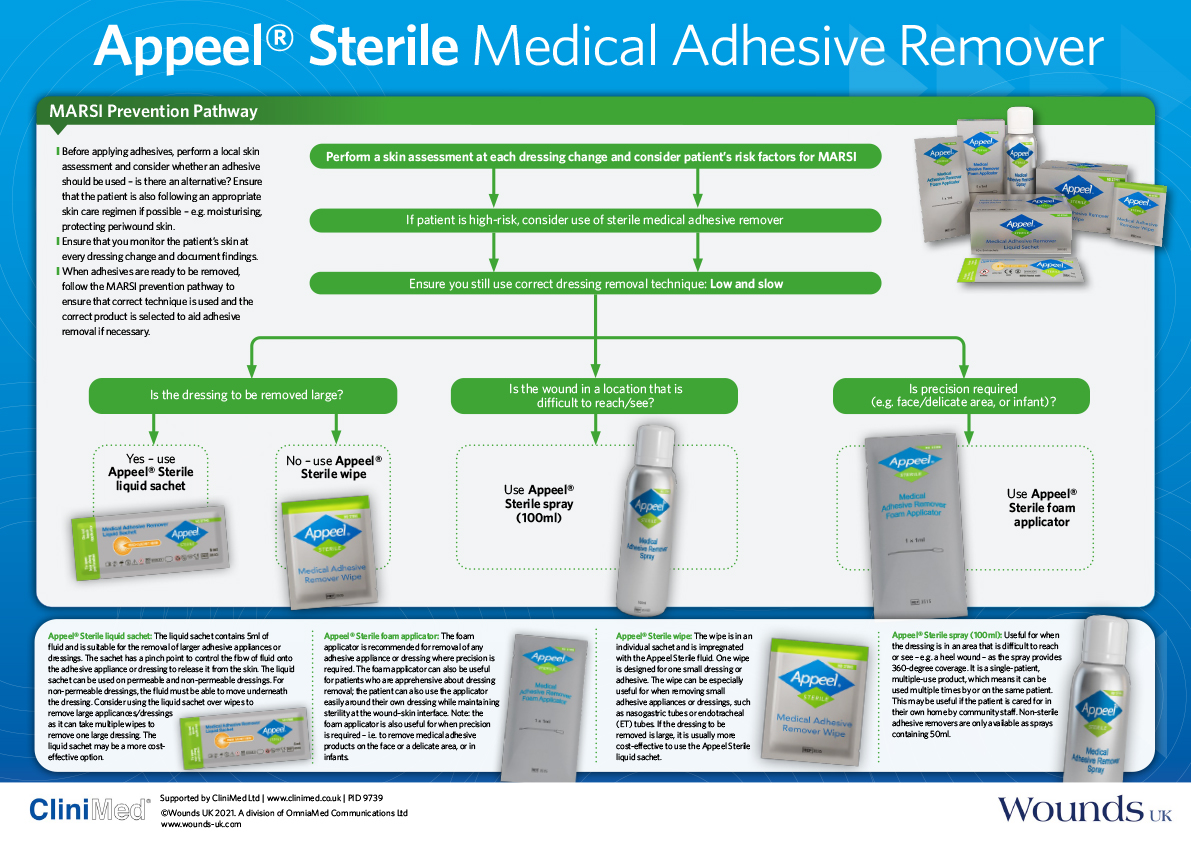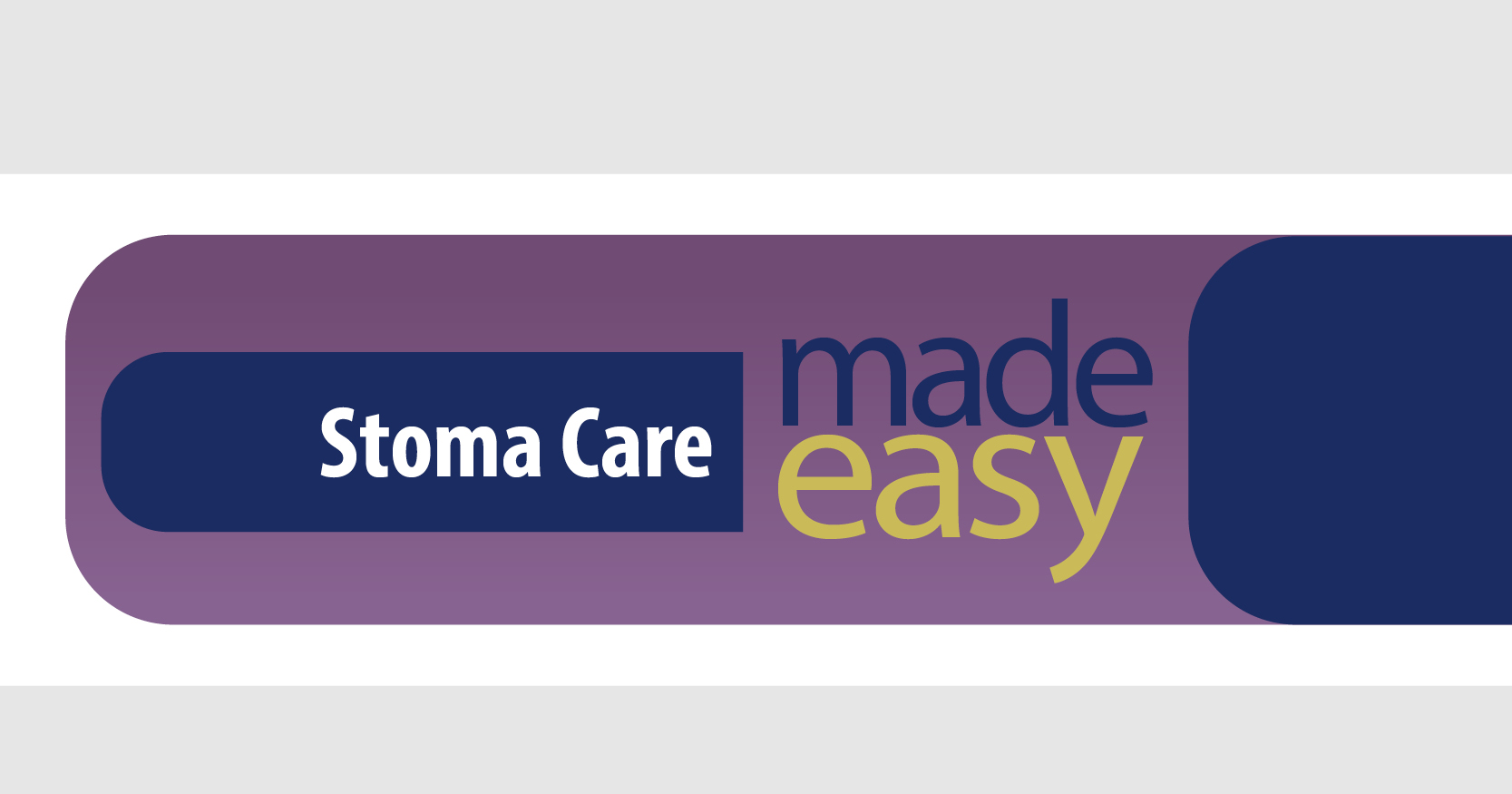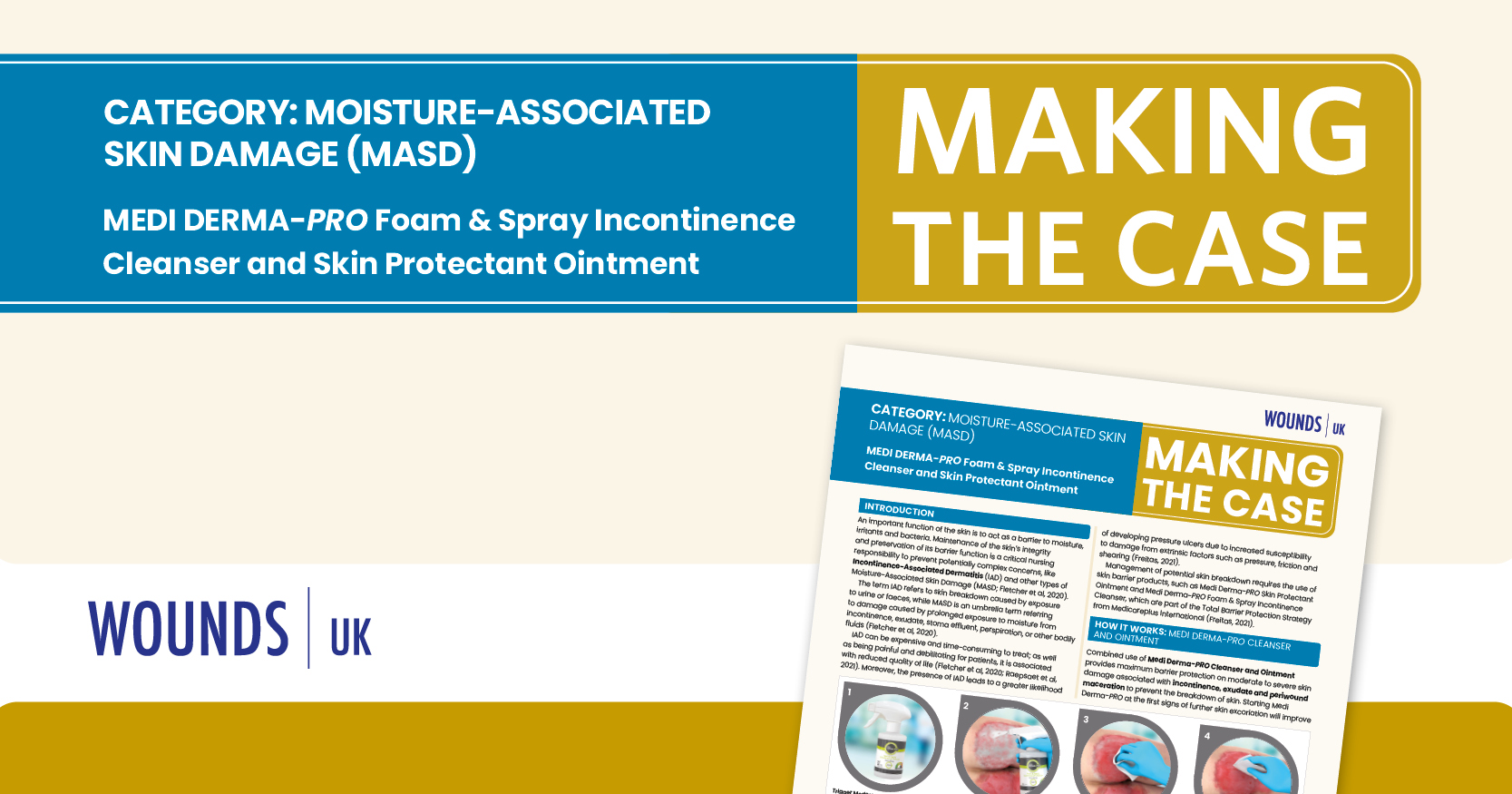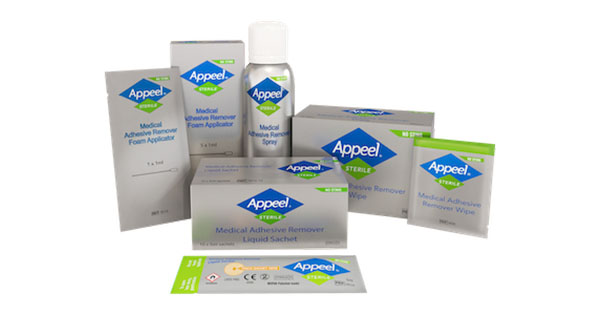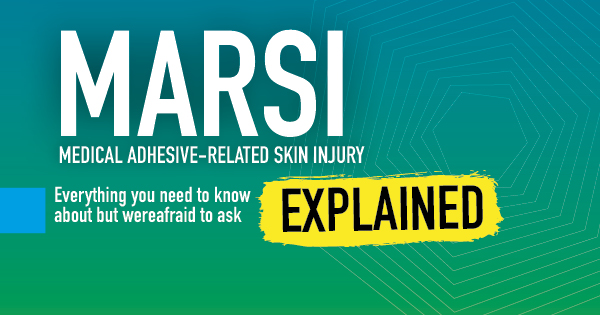Removal of dressings and other adhesives is an important but often overlooked part of practice. If adhesives are not properly removed, there is a risk of causing further damage to the patient, their wound and the surrounding skin.
MARSI (medical adhesive-related skin injury) is a common, under-reported and often avoidable form of skin damage, that frequently results from incorrect removal of dressings or other adhesives. MARSI may present in the form of skin tears, blistering/tension injury, skin stripping or contact dermatitis, for example.
Groups particularly at risk include: those at the extremes of age (paediatric or elderly patients), oncology patients, those with dermatological conditions (e.g. eczema or psoriasis), those with oedema or whose skin is exposed to bodily fluids (e.g. urine, faeces, wound exudate or sweat) for prolonged periods.
To minimise the risk, particularly in patients with at-risk skin, it is recommended to use a medical adhesive remover. In particular, sterile silicone medical adhesive removers have been found to reduce the risk of infection and the need for analgesia, thus reducing nursing time and costs, so are particularly recommended.

